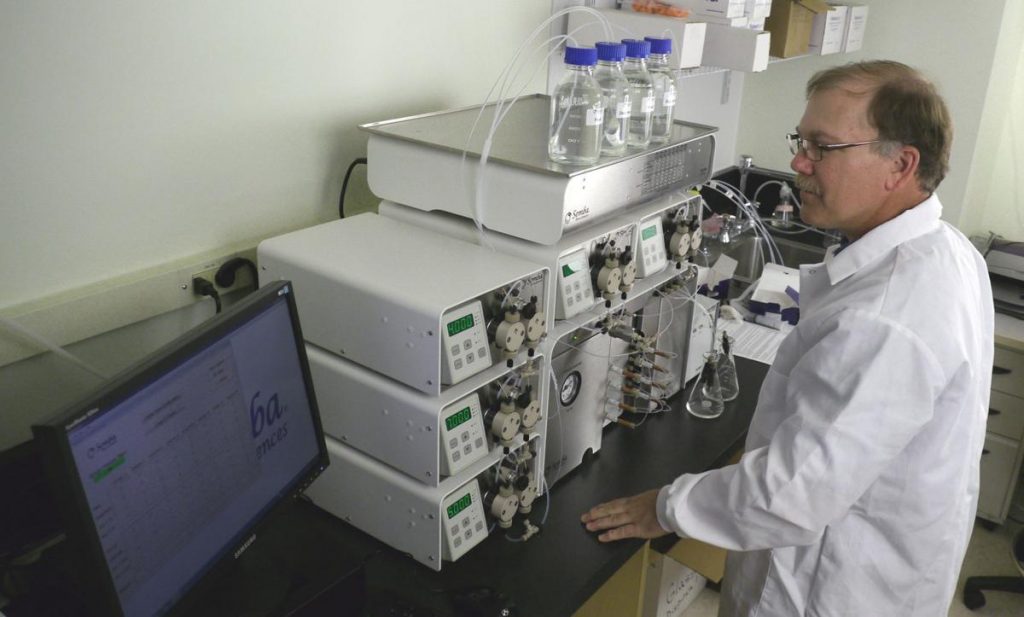16 Oct Japanese company buys Madison’s Semba Biosciences

Semba Biosciences research and development director Tony Grabski looks over the company’s Octave Chromatography System in preparation for a possible run of the equipment. Octave purifies biological products that could someday become new drugs. SEMBA BIOSCIENCES
Madison company that makes purifying equipment used in developing life-saving drugs could expand its workforce after being purchased by the subsidiary of a Japanese conglomerate.
Tosoh Bioscience’s acquisition of Semba Biosciences, founded in 2005, will help Semba “double” its staff within the next year, said CEO and President Robert Mierendorf. He said the company has fewer than 50 employees, but declined to give a specific number for competitive reasons.
The sale could also lead to a larger facility for the biotech company, which has space located at University Research Park on Madison’s West Side.
“Tosoh plans to make Madison the center of excellence for (purification equipment), and we will center the manufacturing and training here,” he said, adding Semba will train Tosoh’s salespeople and provide the firm’s technical support.
The terms and the amount of the sale have not yet been disclosed. But the purchase came after Tosoh invested $3 million in Semba in 2018, on the condition the company would meet several product development goals.
It was a new version of a system Semba mainly used for research that drew Tosoh’s investment then. The system could process and refine biological products being developed into drugs.
The company focused on monoclonal antibodies, which have been tested as potential vaccines and cancer fighters.
Amid the pandemic, the antibodies have been used to help treat COVID-19 with varying levels of success.
That’s because they can help activate the human body’s immune system by binding to sick cells, Mierendorf said, adding that the antibodies have shown much promise in fighting future infectious diseases amid the health crisis.



